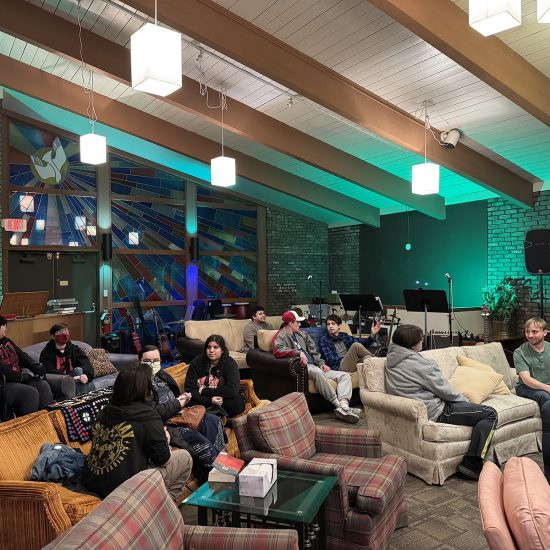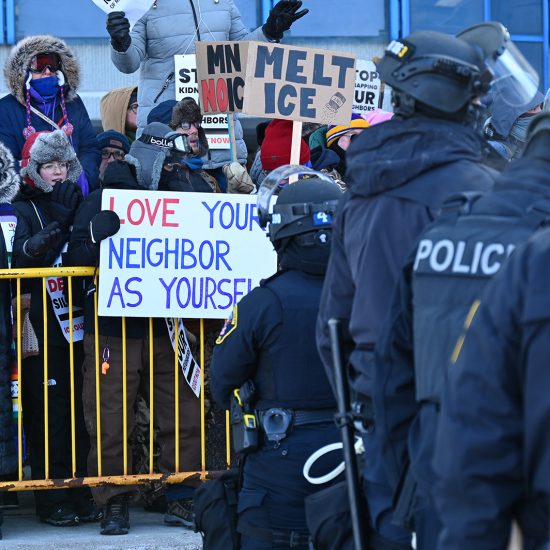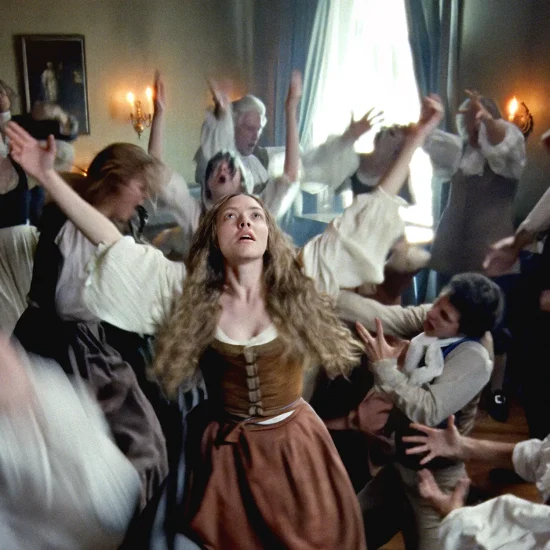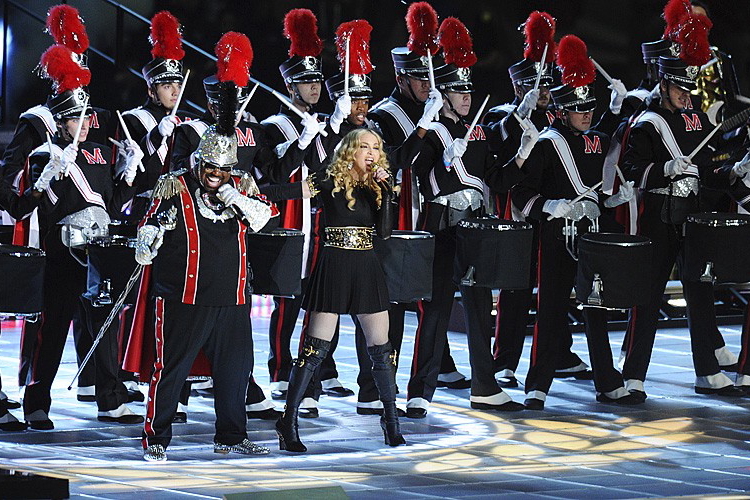
SÃO PAULO, Brazil (RNS) — Conservative Christians are accusing the pop star Madonna, who gave a free concert on Rio de Janeiro’s Copacabana Beach May 4, of including satanic rituals in the show, with catastrophic consequences for Brazil.
The concert, the last stop on Madonna’s The Celebration Tour, drew more than 1.6 million Brazilians and fans from neighboring countries and was aired in its entirety on Rede Globo, the national TV network.
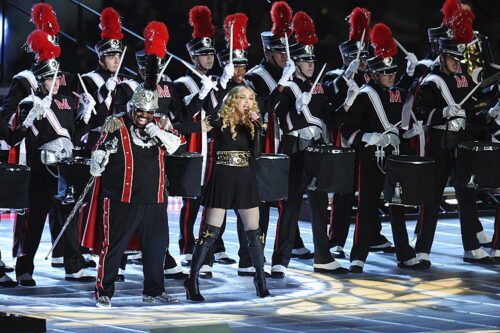
Madonna performing at the 2012 Super Bowl Halftime Show (Center Grove High School Bands / Flickr)
Besides a diverse cast and some sexual play that LGBTQ+ Brazilians and other minorities said spotlighted their communities, the show projected images of Brazilian human rights icons, including Marina Silva, an advocate for rainforest preservation and Brazil’s minister for the environment, and Marielle Franco, an activist and politician who was assassinated in 2018.
Evangelical Christian pastors and digital influencers with ties to former President Jair Bolsonaro have attacked the concert and posted dozens of videos on social media with analysis pointing out purported diabolical behavior and attacks on the Christian faith. They have connected the concert’s licentiousness with unprecedented floods that have devastated cities in Rio Grande do Sul state and killed 147 people.
A video by motivational speaker Pablo Marçal, who combines career insights with Christian ideas, said Rede Globo, a target of the Brazilian far-right in Brazil for its criticism of Bolsonaro during his time as president, said showing “that pornographer” during the flooding “disrespected the Brazilian people that were drowning and dying.”
Marçal said that juxtaposing the two was equivalent to “making offerings with the corpses from Rio Grande do Sul. Anyone with a basic spiritual understanding knows what happened,” Marçal said in the video.
Baptist Pastor Aloizio Penido, a prominent Christian leader from the city of Juiz de Fora, told Religion News Service that the concert was “an insult to God,” and that the images drew an “association with the worst possible segment in society.” He pointed to a picture of Che Guevara and “other anti-Christian leaders.”
Penido also called out the concert’s “agenda” and an implied “endorsement of LGBT people and striptease.”
Penido objected in particular to the funds spent by the Rio de Janeiro city government on behalf of the show.
Lutheran Pastor Romi Bencke, head of the more liberal National Council of Christian Churches, said that the idea of God’s wrath provoking great catastrophes is an outdated concept of how God operates that trivialized the suffering of people in the flooded areas. “The idea of a God of war and punishment is back. But God is not enraged. God is love and compassion. He is not vengeful and is not punishing the people of Rio Grande do Sul,” she told RNS.
“I wonder how a person who lost a family member or a house in a flood feels when confronted with the idea that he or she is being punished by God. It’s inhuman,” she affirmed. Bencke, who is from Rio Grande do Sul, has friends and relatives who have been severely affected by the catastrophe.
She said the use of such ideas in modern times raises questions about the motive. “Why are those ideas being disseminated? Who’s making money with them?” she asked.
Bencke thinks that the digital influencers and religious leaders who have been spreading prejudicial ideas are “taking advantage from the people’s lack of discernment in order to make money and become famous.” She argues that some of them should be criminally investigated for such acts.
Some religious leaders in the flooded region echoed the sense that the disaster was a result of impiety, if not a single event. A Roman Catholic priest in the city of Novo Hamburgo, one of the most impacted areas in Rio Grande do Sul, released a video earlier this week in which he implied that the floods are a consequence of atheism.
“Could it be that there’s a message from heaven with all those rains and floods? Rio Grande do Sul, according to surveys, is the most atheist state in Brazil, many times carried away by its intellectual and economic pride,” said the Rev. Marco Antônio Leal, adding that “God wants the people from the state to kneel down and believe in Him again.”
Another Christian influencer has pointed out that Rio Grande do Sul is one of the states with the highest number of centers of Umbanda and Candomblé, African Brazilian religions associated by many evangelical Christians with the devil, so it’s paying the price now.
Baba Diba de Iyemonja, a prominent Umbanda leader in Rio Grande do Sul, said that the African Brazilian religions are often made scapegoats when a calamity occurs. “We filed a lawsuit against that digital influencer. That has been only the most recent in a series of aggressions that we have been suffering over the past years,” Diba de Iyemonja told RNS.
Diba de Iyemonja pointed out that numerous Umbanda and Candomblé adherents have been impacted by the floods, given that many of them are poor Black people who live in vulnerable areas that were inundated by the swollen rivers.
“We’re now struggling to ensure that federal relief resources will reach us. We are traditionally forgotten at those times,” he added.
Whether or not they saw the floods as divine retribution for Madonna’s antics, evangelicals debated the themes of the show. In a social media debate about whether Christians should attend the concert, 33-year-old lawyer and evangelical Késia Medeiros said she was happy to see so many LGBTQ+ people having fun in the show.
“I wouldn’t attend the concert because Madonna’s music doesn’t reflect my spirituality and my Christian morality,” she told RNS. “But everybody is free to go and be happy about it. I was glad to see older LGBT people, who suffered so much in the 1980s with homophobia and the beginning of AIDS, now being able to celebrate and have fun in Madonna’s show,” she told RNS.
Medeiros, who is a member of a Pentecostal community in Parnamirim, dismissed the idea that Madonna was summoning Satan in her show. “She just found an artistic way of expressing herself — and of making money,” said Medeiros.
As for the floods, they “have impacted Christians and non-Christians alike. It’s not something spiritual. It’s the consequence of human actions,” she said.


